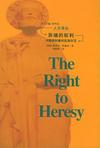Chapter 1 Introduction
Author: Stefan Zweig
In a world that focuses only on the monuments of the victors, "The Right of Heretics: Castellio vs. Calvin" is a constant reminder that our true heroes are not those who establish ephemeral dominions through mountains of corpses , but those who are defenseless and succumb to the might of the superior—as Castellio was overwhelmed by Calvin in his struggle for spiritual freedom, for the eventual establishment of a human kingdom on earth.
Heresy is a relative concept.A man who is burned as a criminal in one country is revered as a martyr in a neighboring country... Who has the right to control the thoughts of a fellow countryman, or to judge the latter's most secret and private beliefs as sins by secular laws? ?Not the state, nor any established authority!
A truth may call God's name a thousand times... but has no right to destroy another life given to God, because this life is more sacred than any doctrine!
We must keep reminding this world that sees only the victors, that the true heroes of our humanity are not those rulers of ephemeral kingdoms who have achieved ephemeral kingdoms by piling up mountains of corpses, but those who have no resistance and are oppressed by the powers above people!
Stefan Zweig: Famous Austrian novelist and biographer. He was born in a wealthy Jewish family. He studied philosophy and literature in Vienna and Berlin in his youth. influences. He was expelled by the Nazis in 1934 and went into exile in Britain and Brazil. In 1942, in loneliness and disillusionment, he and his wife committed suicide in Brazil.Zweig's works are good at novels and characters.Representative works "Turning Point of Life", "The Hours of a Woman's Life", "Dangerous Mercy", etc.; memoir "The World of Yesterday"; The Moment where the Stars Shine" and so on.Zweig's works have enduring charm all over the world, and many domestic publishing houses have published almost all of his biographical works and novel anthologies in recent years.
It tells a short story of the time when the Continent of Europe fell back into night after the brilliant dawn.Calvin, the hero of the Reformation, was already the supreme ruler and tyrant over everything in Geneva.Castellio, a gentle scholar full of humanitarian temperament, launched a heroic confrontation against Calvin's perverse actions with the courage of "flies fighting elephants".If you don't read Zweig's book, Calvin is a conceptual and glorious image in people's minds: a reformer, an anti-feudal fighter, he stands on a ladder of history, and ranks with countless great men with long robes and long beards. Together.If you don't read Zweig, no one can know so clearly that it is this emerging bourgeoisie who is persecuted, hunted, and has to go into exile because of ideals. People who are still his friends and comrades can be so imperious, cruel and mean that ordinary people can't believe it.These people have no intention of coveting his power at all, but want to discuss with him on a few purely academic issues—real discussions, because the manuscript was sent to "dear brother" before it was published, please correct me .

